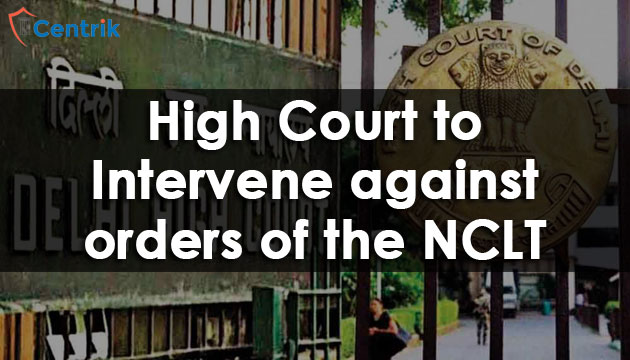
Status as on- 20/12/2019
A recent judgement has been by Hon’ble Supreme Court in the case of M/s Embassy Property Developments Pvt. Ltd. vs State of Karnataka & Ors. and held that the powers of the NCLT under the IBC do not extend to adjudicating disputes relating to quasi- judicial or statutory authorities. Such disputes can only be exercised by the High Court by way of judicial review of administrative action, as they are a matter of public law, meaning by that the High Court can entertain writ petitions when the NCLT exercises powers not vested under the IBC.
BRIEF FACTS
- During the ongoing insolvency proceedings of the Corporate Debtor, the Government of Karnataka issued a notice of premature termination of lease due to alleged violation of statutory rules and terms and conditions of the lease.
- The Interim Resolution Professional filed a writ before the High Court of Karnataka seeking directions for deemed extension of lease as per the moratorium under section 14 of the IBC.
- During the pendency of the writ petition the Karnataka Government passed an order that out rightly rejected the proposal of deemed extension.
- The Insolvency Resolution Professional withdrew the writ petition and instead filed an application with the adjudicating authority, i.e. NCLT Chennai to set aside the order of the Karnataka Government as it violated the provisions of moratorium under the IBC, which was allowed.
- The Government of Karnataka filed a writ petition against the order of the adjudicating authority. The High Court set aside the order of the adjudicating authority and sent it back for fresh consideration.
- However the Adjudicating Authority directed the Government of Karnataka to execute a Supplemental Lease Deed.
- The Government of Karnataka once more approached the High Court which granted a stay against the Adjudicating Authorities decision to execute a Supplemental Lease Deed.
APPEAL BEFORE THE SUPREME COURT
Three separate appeals were filed by the Resolution Applicant, the Corporate Debtor and the Committee of Creditors all of which challenged the stay order of the High Court. The questions put before the Supreme Court were;
- Whether the High Court can interfere against orders passed by the adjudicating authority i.e the NCLT when the provisions for appeal are with the National Company Law Appellate Tribunl?;
The Supreme Court observed:
“The distinction between the lack of jurisdiction and the wrongful exercise of the available jurisdiction, should be taken into account by High Courts, when Article 226 is ought to be invoked bypassing a statutory alternative remedy provided by a special statute”
The Court held that the relationship between the Corporate Debtor and the Government of Karnataka was not merely contractual but governed under a statue i.e. the Mines and Minerals (Development and Regulation Act) 1957. Thus, the decision to extend the lease was a matter of public law. Thus, the NCLT lacked the jurisdiction of Judicial Review over administrative action of the Government.
The Supreme Court further clarified that a moratorium shall preserve status quo and not create a new right. Thus the moratorium imposed under section 14 protects the Corporate Debtor from dispossession from leased property however it does not ensure the right of renewal of lease. Therefore, the NCLT cannot give directions that fall outside the purview of the IBC Code especially in relation to public law.
- Whether the NCLT can enquire into questions of fraud ?
The Supreme Court held that the High Court may not have the power to develop into issues regarding fraudulent transactions or malicious initiation of corporate insolvency proceedings under the IBC as under section 65 and 69 of the code the NCLT is first vested with such power in relation to corporate debtors undergoing insolvency proceedings.
The judgment thus enables stakeholders of the corporate insolvency process to approach the High Court with respect to matters concerning public law that are outside the jurisdiction of the NCLT or the NCLAT.
Disclaimer – The above article is based on interpretation of the related judicial pronouncement and related laws which may differ from person to person. The readers are expected to take expert opinion before placing reliance on it. For more information, please reach us at support@centrik.in or call us at 8383011629.




 join For Updates
join For Updates